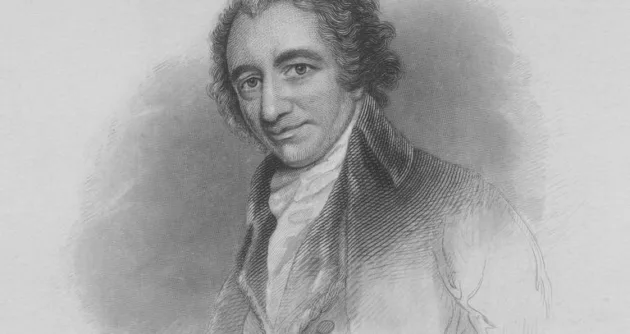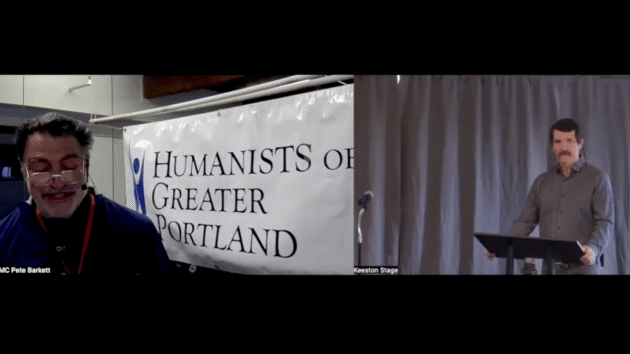Author, Ben Price, was interviewed on the Project Censored Show by Eleanor Goldfield about his new book, Wouldn’t You Say, A Collection of Essays on Environment and Community. In the book and in their conversation, Ben explains that what we’re seeing today is not a perversion of the promise of America, it’s actually a proof of concept, a continuation of foundational ideologies never meant to protect we, the people, and certainly not to protect the ecosystems of which we are a part. Ben discusses rights of nature not as a legal north star but as a need to shift our thinking about relationships, between ourselves, the law, and empirical reality.
Contact:
Ben Price, Education Director
BenPrice@CELDF.org, 717-254-3233
Kai Huschke, Executive Director
Kai@CELDF.org, 509-607-5034
“Wouldn’t You Say? A Collection of Essays About Environment and Community”
BOWMANSTOWN, PA — A new book of essays written by a trailblazer in the Rights of Nature movement tackles the enduring myths behind the environmental crisis.
“Wouldn’t You Say? A Collection of Essays About Environment and Community” was written by Ben Price and published by the Community Environmental Legal Defense Fund (CELDF) in November.
Price was a central force behind the first-ever law to recognize the Rights of Nature in the United States, back in 2006. He has been a grassroots organizer for twenty years with CELDF, assisting dozens of communities to pass laws restricting corporate power and recognizing nature’s rights.
“For over fifty years in the United States, environmentalists have tried to protect the environment by regulating the rate of destruction,” Price writes in the book. “But despite the Clean Water, Clean Air, and Endangered Species Acts, and the creation of the federal EPA and state-level agencies, this has only succeeded in lulling conservationists into a stupor while Nature bleeds out.”
The book points to the climate crisis, ballooning pollution and toxicity issues, and the biodiversity crisis as examples.
For solutions, Price suggests radical, even revolutionary community organizing for sovereignty against corporate power that goes far beyond ineffective and co-opted methods of regulation and environmental lawsuits.
These strategies have stirred a hornets’ nest of opposition. Price writes:
“During our two decades of organizing communities and drafting municipal legislation, the CELDF team encountered every variety of opposition from corporate lawyers and judges — [but also] from established environmental organizations and their directors who insisted our ‘radical’ legislation would interfere with their ‘serious’ and ‘mature’ attempts to negotiate with regulators and polluters.
In every community we organized, we were honest with our local partners about the unlikelihood of prevailing through litigation. They heard from us first about how they could expect to be ridiculed, dismissed, and ostracized for not taking what they could get after negotiating for some portion of their rights and the rights of the non-human part of their communities.
We shared our hope that gradually, eventually, the idea of legal rights for living ecosystems would be normalized and accepted. We were, we explained, not so much engaged in a legal strategy as we were testing a theory of experiential education and cultural change.”
Today, CELDF continues to present the idea of Rights of Nature through proposed legislation like the Great Lakes Bill of Rights introduced into the New York State Assembly by Member Patrick Burke, and a number of pending local bills. The organization is also expanding its efforts into community resistance and resilience efforts.
You can order a copy of “Wouldn’t You Say? A Collection of Essays About Environment and Community: The Necessary & Natural Relationship” for a special pre-order price of $20. Until the end of the year, any donors who contribute at least $150 will also receive a copy of the book, as well as CELDF’s prior publication, “Rebelling Against the Corporate State.”
Mr. Price is now available for radio and broadcast interviews, book talks, and podcast appearances. Kai Huschke, CELDF’s Executive Director, is also available.
More information about CELDF, including photos pre-approved for media use, can be found in our press kit.
###
About Ben Price
Ben Price has worked with the Community Environmental Legal Defense Fund since 2004, initially focusing on organizing with communities in Pennsylvania before expanding nationwide. Ben’s work has included assisting the first community on settler colonial-controlled land on Earth to recognize legal rights for ecosystems (Tamaqua, PA, 2006) and working with the City Council of Pittsburgh to adopt a community bill of rights banning fracking, directly challenging state preemption of local control over oil and gas corporations, and recognizing Rights of Nature.
Today he works on municipal efforts nationwide. Ben participated in the founding of the Global Alliance for the Rights of Nature (Ecuador, 2010), and authored the book “How Wealth Rules the World: Saving Our Communities and Freedoms from the Dictatorship of Property,” which won the Independent Publisher’s 2020 silver medal. He lives on ancestral lands of the Delaware/Lenape and Mohican people, in Pennsylvania.
About the Community Environmental Legal Defense Fund
The Community Environmental Legal Defense Fund (CELDF) is helping build a movement for Community Rights and the Rights of Nature to advance democratic, economic, social, and environmental rights – building upward from the grassroots to the state, federal, and international levels.
Begun as a traditional public interest law firm seeking to protect the environment, CELDF sought to protect communities from projects such as incinerators and waste dumps that cause environmental harm. Along the way, they encountered barriers put in place by both government and corporations. Such barriers included corporate constitutional “rights” and the unilateral preemptive authority of state government – both of which are used to override community decision-making and local democracy.
Today, through grassroots organizing, public education and outreach, and legal assistance, nearly 200 municipalities across the U.S. have advanced CELDF-drafted laws to establish rights for ecosystems as well as human rights to water and a liveable climate, as well as to ban practices including fracking, factory farming, sewage sludging of farmland and water privatization.
Further, CELDF has worked with the first U.S. communities and the first country (Ecuador) to establish the Rights of Nature in law – recognizing the rights of ecosystems and natural communities to exist and thrive and empowering people and their governments to defend and enforce these rights.
This Rights of Nature movement has since blossomed and today enjoys tremendous public support and enthusiasm throughout the world.
Published in the Columbia Free Press on 2-8-25.


